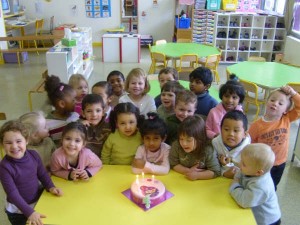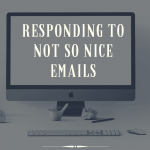Impact happens in the moments between everything else. Often, we don’t even recognize the opportunity that just came and went – but, the strength of our relationships allow those moments to impact lives for the better, rather than to simply become wasted opportunities.
Whether we know it or not.
We often talk about the importance of relationships. But, why do they really matter? Or, is it simply a longstanding cliche? Emerging research suggests that our opinions are not shaped by facts, but by emotion, and emotion is a product of a visceral, subconscious response to a person or situation. It explains the documented increase in polarity in politics, as it becomes self-reinforcing and stands only to grow into omnipresent clicks, groups, and echo chambers of like-minded people who exchange the similar components of ideology. Further, we subconsciously prevent data contrary to our current running narrative and beliefs.
And, all of this happens without us even knowing.
But the science is fascinating, and growing bodies of evidence suggest that decisions aren’t as simple as they seem. In essence, I decide if I like you first, and then that impression I have seeds the soil for me to rationalize/internalize what you say. All of this based on a real or perceived connection.
What does this have to do with you and your work as an educator? Everything.
A student’s perception of the relationship with the teacher significantly increases or decreases the odds of that child’s success. The odds of a teammate effectively executing a PLC plan for which you’ve advocated also increases or decreases with the perception of the relationship with you.
So, does that mean everyone has to like you? Of course not. Maybe it’s more of a respect. Or a trust. Or a mix of them all. But there has to be a positive and productive foundation on which to build your work.
In terms of children, it’s a bit different, yet surprisingly similar. And if there’s anything you take from this post, it’s this: I’ve seen some of the toughest and most stubborn students lock horns with outstanding and equally stubborn teachers, and the sparks have sometimes flown. But the truth of the matter is that the teacher sent every signal that she cared.
In those cases, they cared in their stubbornness to not give up.
In the better times, they were equally hard-headed – about celebrating success, commending effort, or prodding a child to share about his weekend; in every moment they send a message of caring. And, children ultimately like those who care about them. Granted, sometimes it takes a while for them to recognize that bond for what it is: commitment and love.
When I say that impact happens in the moments, I speak to the fact that through our eyes, any fleeting moment is just that. It’s our ego perceiving the world, so if it wasn’t important to us, it wasn’t an important moment in some cosmic sense. What we don’t intuitively understand is that our “space between” the big events may be the big event for those with whom we interact.
It is in those moments that relationships are built, and although it has indeed become cliche – those bonds hold the potential for a lifetime of positive impact.
We would be wise to not waste them.









